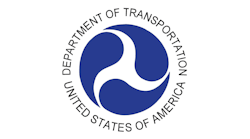U.S. Transportation Secretary LaHood Launches Historic Expansion of Infrastructure Finance Fund
U.S. Transportation Secretary Ray LaHood announced the availability of up to $17 billion in loans for critical infrastructure projects across the country as a result of the recently enacted surface transportation bill. Secretary LaHood encouraged states and cities across the country to submit letters of interest for the TIFIA (Transportation Infrastructure Finance and Innovation Act) program, which provides direct loans, loan guarantees, and standby lines of credit to major infrastructure projects with the potential to create jobs and spur economic development and growth.
"Americans have always done big things – not in spite of hard times, but as a means of overcoming them," said U.S. Transportation Secretary Ray LaHood. "That's why the Obama Administration is launching the largest infrastructure loan program in our history – these investments will help cities and states create jobs right away building the big transportation projects we need to make sure our economy continues to grow and prosper."
The recently enacted surface transportation bill, known as MAP-21, provided $1.7 billion in capital over two years for the TIFIA credit assistance program, up from $120 million in FY2012, making it the largest transportation infrastructure finance fund in the Department's history. Each dollar of federal funds can provide approximately $10 in TIFIA credit assistance, meaning $17 billion in loans through TIFIA, which in turn can leverage $20-$30 billion in transportation infrastructure investment. Altogether, the expanded federal loan program could result in up to $50 billion in Federal, state, local and private sector investment for critical transportation projects across the country.
A wide range of critical transportation projects are eligible for the funding, including everything from highway and passenger rail projects to public transit and international bridges and tunnels. Because of the flexibility provided by the TIFIA programs, many qualified, large-scale projects that might otherwise be delayed or shelved can move forward quickly, providing an immediate boost to jobs while laying a foundation for continued economic growth.
To date, the TIFIA program has used $9.2 billion in funding to leverage more than $36.4 billion in private and other capital to help build 27 major transportation projects around the country. In the past, TIFIA has supported signature projects like the Presidio Parkway Project in California, which is replacing the structurally and seismically deficient access road to the Golden Gate Bridge with the Presidio Parkway, which will connect San Francisco and Marin Counties with a safe and modern roadway. TIFIA also participated in funding the Miami Intermodal Facility in Florida, which will help travelers easily connect to the Miami International Airport, Metrorail transit, and Tri-Rail commuter rail, as well as Amtrak and Intercity bus services. More information about other projects, including the Denver Union Station in Colorado, and the Midtown and Downtown Tunnels in Virginia, is available here: http://www.fhwa.dot.gov/ipd/tifia/projects_project_profiles/.
In addition to announcing the availability of the expanded TIFIA funding, Secretary LaHood also announced the establishment of the Project Finance Center (PFC) to help state and local government project sponsors analyze financial options for highway, transit, rail, intermodal and other surface transportation projects facing funding challenges. Through the PFC, the Department of Transportation will have a unique opportunity to provide technical assistance to state and local sponsors of surface transportation projects seeking financial support, making it easier for communities to build the transportation projects they need.
A copy of the notice of funding availability that was delivered to the federal register today can be found here: http://www.dot.gov/cfo/doc/tifia-nofa.PDF and the letter of interest template can be found here: PDF Version or Microsoft Word Version.



